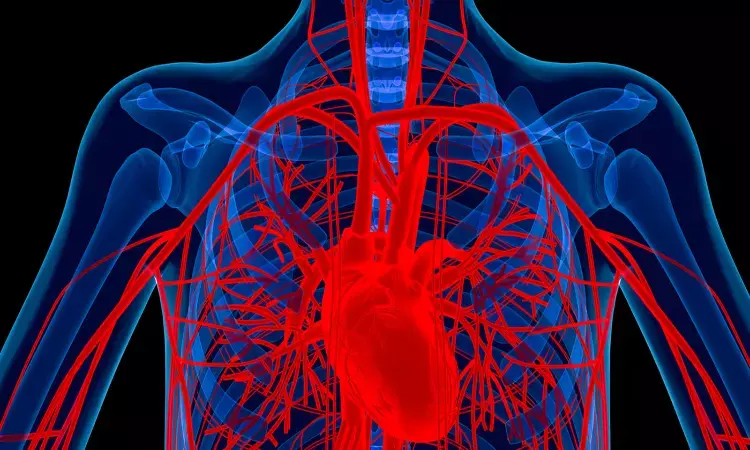- Home
- Medical news & Guidelines
- Anesthesiology
- Cardiology and CTVS
- Critical Care
- Dentistry
- Dermatology
- Diabetes and Endocrinology
- ENT
- Gastroenterology
- Medicine
- Nephrology
- Neurology
- Obstretics-Gynaecology
- Oncology
- Ophthalmology
- Orthopaedics
- Pediatrics-Neonatology
- Psychiatry
- Pulmonology
- Radiology
- Surgery
- Urology
- Laboratory Medicine
- Diet
- Nursing
- Paramedical
- Physiotherapy
- Health news
- Fact Check
- Bone Health Fact Check
- Brain Health Fact Check
- Cancer Related Fact Check
- Child Care Fact Check
- Dental and oral health fact check
- Diabetes and metabolic health fact check
- Diet and Nutrition Fact Check
- Eye and ENT Care Fact Check
- Fitness fact check
- Gut health fact check
- Heart health fact check
- Kidney health fact check
- Medical education fact check
- Men's health fact check
- Respiratory fact check
- Skin and hair care fact check
- Vaccine and Immunization fact check
- Women's health fact check
- AYUSH
- State News
- Andaman and Nicobar Islands
- Andhra Pradesh
- Arunachal Pradesh
- Assam
- Bihar
- Chandigarh
- Chattisgarh
- Dadra and Nagar Haveli
- Daman and Diu
- Delhi
- Goa
- Gujarat
- Haryana
- Himachal Pradesh
- Jammu & Kashmir
- Jharkhand
- Karnataka
- Kerala
- Ladakh
- Lakshadweep
- Madhya Pradesh
- Maharashtra
- Manipur
- Meghalaya
- Mizoram
- Nagaland
- Odisha
- Puducherry
- Punjab
- Rajasthan
- Sikkim
- Tamil Nadu
- Telangana
- Tripura
- Uttar Pradesh
- Uttrakhand
- West Bengal
- Medical Education
- Industry
High dosage RAS blockade linked to improved survival after TAVR, finds study

According to a study published in the Canadian Journal of Cardiology, researchers found that higher doses of renin-angiotensin system (RAS) blockade are associated with improved survival and beneficial left ventricular remodeling 3 years after transcatheter aortic valve replacement (TAVR).
Angiotensin-converting enzyme inhibitors (ACEIs) have been widely prescribed worldwide and have been associated with a reduction in cardiovascular mortality in a large range of patients with cardiovascular disease, and in patients at risk for negative cardiovascular outcomes.
Though a growing body of evidence from retrospective studies has suggested that the renin-angiotensin system (RAS) blockade is associated with improved outcome after transcatheter aortic valve replacement (TAVR), however, it remains unknown whether the effect of RAS blockade is dose-dependent.
The present study by Jakob Ledwoch et al, at the Technical University of Munich, Munich, sought to assess the dose-dependent effect of RAS blockade on survival and left ventricular (LV) remodeling after TAVR.
The study design consisted of Patients who were enrolled into the observational TAVR study at the institution and were retrospectively assessed according to different dosed of RAS blockade: Group 1 (no RAS blockade), group 2 (25% of maximum daily dose), group 3 (50% of maximum daily dose) and group 4 (full daily dose).
Results revealed the following key facts.
- A total of 323 patients between January 2015 and September 2019 were included.
- Patients with higher doses of RAS blockade showed a trend towards higher overall survival at 3-year follow-up (56% with no RAS blockade vs. 66% with the 25% dose vs. 79% with the 50% dose vs. 78% with the full dose; p=0.063).
- After adjustment for baseline characteristics, the difference in survival was significant (p=0.042).
- Besides NYHA class and left ventricular ejection fraction (LV-EF) RAS blockade dose was identified as independent predictor for all-cause mortality (HR 0.72 [95% CI 0.54-0.97]; p=0.03).
- Concerning LV remodeling, a significantly larger reduction of LV mass index was observed during the follow-up with higher doses of RAS blockade.
On closely observing the results, the authors concluded that "The present study showed that the impact of RAS blockade treatment on clinical outcome and LV remodeling after TAVR is dose-dependent."
For full article follow the link: DOI:https://doi.org/10.1016/j.cjca.2020.08.014
Primary source: Canadian Journal of Cardiology
Dr Satabdi Saha (BDS, MDS) is a practicing pediatric dentist with a keen interest in new medical researches and updates. She has completed her BDS from North Bengal Dental College ,Darjeeling. Then she went on to secure an ALL INDIA NEET PG rank and completed her MDS from the first dental college in the country – Dr R. Ahmed Dental College and Hospital. She is currently attached to The Marwari Relief Society Hospital as a consultant along with private practice of 2 years. She has published scientific papers in national and international journals. Her strong passion of sharing knowledge with the medical fraternity has motivated her to be a part of Medical Dialogues.
Dr Kamal Kant Kohli-MBBS, DTCD- a chest specialist with more than 30 years of practice and a flair for writing clinical articles, Dr Kamal Kant Kohli joined Medical Dialogues as a Chief Editor of Medical News. Besides writing articles, as an editor, he proofreads and verifies all the medical content published on Medical Dialogues including those coming from journals, studies,medical conferences,guidelines etc. Email: drkohli@medicaldialogues.in. Contact no. 011-43720751


